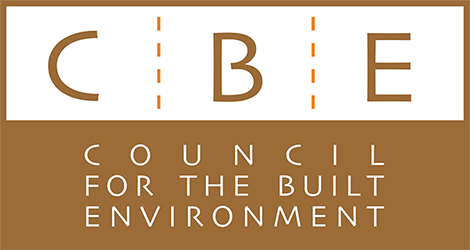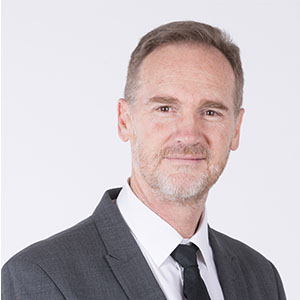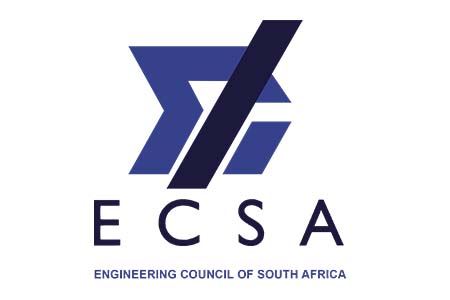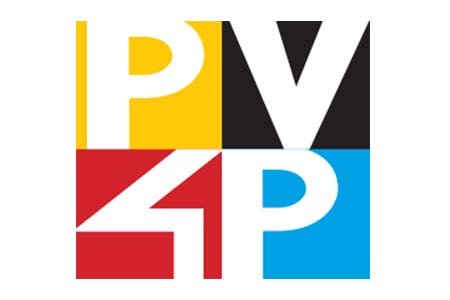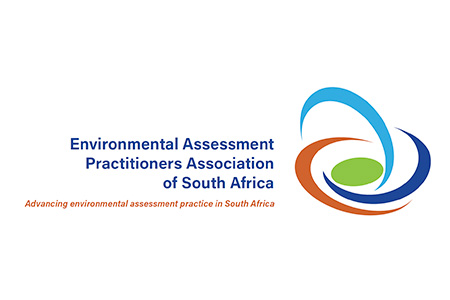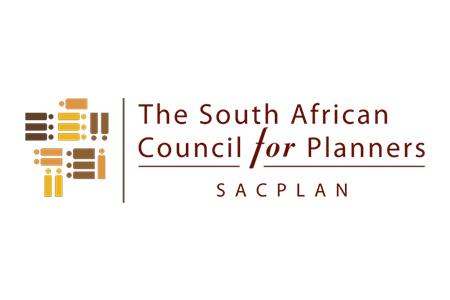About CBE
What We Do
The Council for the Built Environment (CBE) is a Schedule 3A Public Entity that reports to the National Department of Public Works and Infrastructure. It is a regulatory body established under the Council for the Built Environment Act (No. 43 of 2000) (the CBE Act). The CBE was established for the purpose of instilling good conduct within built environment professions, mobilising transformation in the built environment professions, protecting the interest of the public and advising the South African Government on Built Environment related issues.
The mandate of the CBE, as stated in section 3 of the CBE Act 43 of 2000 is to:
- promote and protect the interest of the public in the built environment;
- promote and maintain a sustainable built environment and natural environment;
- promote ongoing human resources development in the built environment;
- facilitate participation by the built environment professions in integrated development in the context of national goals;
- promote appropriate standards of health, safety and environmental protection within the built environment;
- promote sound governance of the built environment professions;
- promote liaison in the field of training in the Republic and elsewhere and to promote the standards of such training in the Republic;
- serve as a forum where the built environment professions may discuss the relevant
- required qualifications;
- standards of education;
- training and competence;
- promotion of professional status; and
- legislation impacting on the built environment; and
- ensure uniform application of norms and guidelines set by the councils for the professions throughout the built environment.

An intelligent, inclusive, adaptive and thriving Built Environment by 2035
To lead, regulate, advise and coordinate professions and their councils to meet the National Built Environment and Transformation Future of the industry.
- Quality is non-negotiable
- Professionalism in all that we do
- Future orientated
- All-round inclusiveness
Building South Africa’s future
Sixth Term Council: 2022 - 2026
CBE Management Team
Governance
Corporate Governance is essentially about effective leadership, the ethics of responsibility, accountability, fairness and transparency. In the context of the CBE, it entails:
- Creating an appropriate, ongoing and dynamic monitoring system of checks and balances;
- Implementing a system to ensure the CBE complies with its legal and regulatory obligations;
- Implementing a process to identify and manage risks that threaten the sustainability of the CBE`s mandate; and
- Developing practices, which make and keep the CBE accountable to its stakeholders.
The CBE takes its governance responsibility from the relevant legislation and the principles of the King IV™ Report.
The role of the Council
The CBE is headed by a 20 member Council, which is the Accounting Authority of the organisation and reports to the Minister of Public Works and Infrastructure. The role and responsibilities of the Council are to:
- Act as the focal point for, and custodian of, corporate governance by managing its relationship with management, the councils for the professions, DPW, the Ministry of Public Works and other stakeholders of the organisation along sound corporate governance principles.
- Appreciate that strategy, risk, performance and sustainability are inseparable and to give effect to this by:
- Contributing to and approving the strategy.
- Satisfying itself that the strategy and business plans do not give rise to risks that have not been thoroughly assessed by management.
- Identifying key performance and risk areas.
- Ensuring that the strategy will result in sustainable outcomes.
- Considering sustainability as a business opportunity, that guides strategy formulation.
- Provide effective leadership on an ethical foundation.
- Ensure that the organisation is and is seen to be a responsible corporate citizen by having regard to not only the financial aspects of the business of the organisation, but also the impact that the business operations have on the environment and the society within which it operates.
- Ensure that the organisation’s ethics are managed effectively.
- Ensure that the organisation has an effective and independent Audit and Risk Committee.
- Be responsible for the governance of risk.
- Be responsible for IT governance.
- Ensure that the organisation complies with applicable laws and considers adherence to non-binding rules and standards.
- Ensure that there is an effective risk-based internal audit.
- Appreciate that stakeholder perceptions affect the organisation’s reputation.
- Ensure the integrity of the organisation’s quarterly and annual reports.
- Act in the best interests of the organisation by ensuring that members:
- Adhere to legal standards of conduct.
- Are permitted to take independent advice in connection with their duties following an agreed procedure.
- Disclose real or perceived conflicts to the Council and deal with them accordingly.
- Deal in securities only in accordance with the policy adopted by the Council.
- Commence business rescue proceedings as soon as the organisation is financially distressed.
- Appoint and evaluate the performance of the CEO.
Composition of the Council
The Act stipulates that Council comprises 20 (non-executive) members appointed by the Minister of Public Works consisting of:
- One representative from the department;
- Not more than three persons nominated by state departments within whose functional areas the professions are also practised; taking due cognisance of provincial participation;
- Two representatives nominated by each council for the professions; and
- Not more than four persons nominated by the public through an open process of public participation.
Committees and Forums
COMMITTEES AND FORUMS
The Sixth Term Council established the following structure to provide strategic direction for the CBE to implement its mandate effectively:
| STATUTORY COMMITTEES | ||||||
| Executive Committee (EXCO) | Audit And Risk Committee (ARC) | Appeal Committee | ||||
| ARC OPERATIONAL COMMITTEES | ||||||
| IT Steering Committee (ITSC) | Operational Risk Management Committee (ORMC) | |||||
| ESTABLISHED COMMITTEES OF COUNCIL | ||||||
| Shared Services Committee (SSC) | Built Environment Transformation Committee (BETC) | |||||
| ESTABLISHED FORUMS | ||||||
| Presidents Forum | Registrars Forum | Transformation Collaborative Forums (TCF) | ||||
| Procurement Policy Legislation and Socio-Economic Development Forum (PPLSED) | Women Empowerment and Gender Equality Forum (WEGE | Environmental Sustainability (ES) | Professional Skills and Capacity Development (PSCD) | Health Safety Public Protection and Universal Access (HSPPUA) | ||
In terms of the Act, the EXCO may hold meetings as and when necessary, with a minimum of four in each financial year. The Act prescribes the mandate of the EXCO as follows:
- Ensure that the resolutions of the Council are carried out.
- Consider any matter delegated to it by the Council in terms of any law, and advise the Council in connection therewith.
- Prepare estimates of revenue and expenditure of the Council.
- Control the expenditure of monies voted by Council in its approved estimates and all other monies or funds made available from the Council.
- Exercise or perform any power, duty or function delegated to it by the Council and such other powers as may be delegated to it by Council in terms of clause 16 of the CBE Act.
- Report at every ordinary meeting of the Council on the activities of the committee.
- Establish an annual work plan to ensure that all relevant matters of the committee’s roles and responsibilities are covered.
The ARC comprises five members, the majority of whom are independent non-executive members. The main objective of the committee is to assist Council in discharging its duties relating to the safeguarding of assets, adequate operation of systems, control procedures and the preparation of accurate financial reports and statements of compliance with all legal requirements and accounting standards.
The three external members of the ARC were appointed by Council during the November 2014 meeting for the period 11 April 2019 to 10 April 2023. The external members appointed are:
- P. Stock
- L.M. Manquku
- Dr. L. Konar
SHARED SERVICES COMMITTEE
The FHLC is a newly reconstituted committee incorporating the previously freestanding committees of finance, human resources and legal from the 3rd term Council. The mandate of the FHLC is as follows:
FINANCE
- Consider matters of financial strategy and policy, including procurement and supply chain management, risk management and insurance, as they relate to the operation of the CBE; and in particular the optimum use of available and potential financial resources (including internal investment options and their rate of return).
- Consider and assess all investment opportunities available to the CBE, in respect of all funds which it administers, and determine the manner and extent to which funds are to be invested with a view to ensuring both security and optimisation of income.
- Review the annual financial statements of the CBE in conjunction with the Audit and Risk Committee, and make recommendations to Council.
- Receive and consider budget proposals from the Executive and recommend to Council, the annual operating and capital budgets.
- Monitor compliance with the PFMA in respect of matters relating to the Act.
- Review the adequacy of the working capital by comparing cash focus against the actual.
- Receive reports of fraud relating to the CBE.
- Report on the activities of the Committee at every regular meeting of the Council.
- Establish an annual work plan to ensure that all relevant matters of the committee’s roles and responsibilities are covered.
HUMAN RESOURCES
- Consider and make recommendations on the human resources strategy to ensure that the CBE is able to attract, retain and develop the best possible talent to support its business performance.
- Consider and make recommendations on the creation or review of an organisational culture, structure and processes which seek to support the development of staff and optimisation of their potential in particularly those that have been previously disadvantaged so as to address any existing inequalities in staff profiles and organisational practice.
- Ensure compliance with all employment legislation such as Employment Equity Act, Labour Relations Act and Basic Conditions of Employment Act, etc.
- Consider and make recommendations on a formal and transparent procedure for developing a policy on remuneration with particular reference to Senior Management.
- Determination of annual remuneration adjustments for all staff members.
- Creation and abolition of Senior Management positions, appointments, transfers and promotions of Senior Managers; appraisal of performance of the CEO, and implementation of any disciplinary action against the CEO.
LEGAL
- Deal with the BE Policy proposal by DPW relating to the repeal of the CBE Act.
- Deal with Identification of Work; Appeals; Planning, Monitoring and Evaluation; and other legal compliance matters within the BEPCs.
- Deal with Corporate Governance matters in Council.
BUILT ENVIRONMENT TRANSFORMATION COMMITTEE
The Built Environment Matters Committee is a newly constituted committee, and its mandate is as follows:
BROADER GOVERNMENT PRIORITIES AND PROGRAMMES IN THE BE
- Skills Plan for government infrastructure rollout programme (PICC and SIPs).
- Job Creation Initiatives of government (Linkage to Extended Public Works Programme (EPWP) within the DPW and involvement of BEPCs in labour intensive construction).
- Environmental sustainability agenda (Linkage to the DPW Green Buildings initiatives).
- Health and Safety in Construction (Linkage to the Department of Labour’s initiatives and incorporation of health and safety into the curricula of built environment academic programmes).
- Transformation:
- The proposal on the NPO that will undertake transformation initiatives in schools, tertiary institutions and for quality assured workplace training; and
- Support for the BEPCs’ transformation plans.
SKILLS DEVELOPMENT INITIATIVES IN THE BE
- Maths and Science programme in schools.
- Monitoring of accreditation of academic programmes and academic institutions; monitoring of registration including RPL.
- Quality assured workplace training for new BE graduates for candidature, and interns for experiential learning.
RESEARCH AND INFORMATION ON BE MATTERS
- Research on BE matters that are of priority to the DPW.
- Research on BE matters that are of priority to the BEPCs.
- Research on BE matters that are of priority in service delivery. (Municipalities, National, Provincial and Infrastructure Depts. – e.g. IDMS)
- Research on BE matters that are of priority to industry and members of the general public.
BEPC GENERAL MATTERS
- Implementation of policies within the BEPCs
- Business plan issues of the BEPCs
- Support, guidance and monitoring of the BEPCs.
- Support for the regulations regarding the conclusion of identification of work
- Other BEPC related matters
Councils for the Built Environment Professions (CBEP)
The Architectural Profession Act, 2000 (Act No. 44 of 2000) (referred to as “the Act”), was published on 1 December 2000 and came into operation on 26 January 2001. The Act replaced the Architect Act of 1970, which affects all persons practising in the architectural profession. After 30 June 2006, registration with SACAP became compulsory for all persons practising architecture in the following categories: Professional Architect, Professional Senior Architectural Technologist, Professional Architectural Technologist and Professional Architectural Draughtsperson, as well as the candidates in all four categories.
